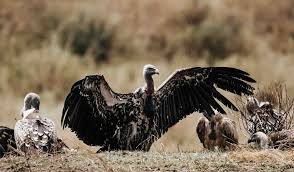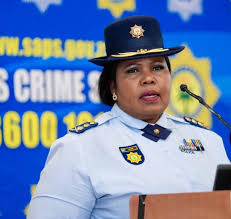
– The Kruger National Park said the poisoning incident was one of the deadliest incidents the game park has ever seen.
John Cassim
South African police in the Limpopo province have launched a manhunt for suspects linked to the recent death of over 100 vultures and the illegal hunting of an elephant in the Kruger National Park.
According to reports, on 8 May 2025, Phalaborwa SAPS received a report of an elephant carcass discovered in the Mushiyani block, Mahlangeni area of the Kruger National Park.
Initial investigations revealed that poachers used a cable snare to trap the elephant and then laced the carcass with poison.
This toxic act caused devastating consequences when vultures fed on the contaminated carcass.
Tragically, 123 vultures were found dead at the scene. A further 86 poisoned vultures were rescued and taken to a rehabilitation center in Hoedspruit for treatment.
Despite rehabilitation efforts, one of the rescued vultures succumbed on 9 May 2025, bringing the death toll to 124, with 85 still receiving care.
It was noted that both tusks on the elephant were still intact, suggesting the poachers may have been disturbed before they could remove them.
The Provincial Commissioner of Police in Limpopo, Lieutenant General Thembi Hadebe, has strongly condemned this heinous act of wildlife crime.

With 38 years of experience, Lieutenant General Monica Thembi Hadebe is firmly in charge of 105 police stations, five districts and 18 provincial components, with a total of 8,345 Police Act members and 2,014 Public Service personnel across Limpopo. Picture: SAPS
“We are appalled by this senseless killing of our protected wildlife. Not only was an elephant illegally hunted, but the deliberate poisoning has resulted in significant damage to our vulture population, which plays a crucial role in our ecosystem,” said Lieutenant General Hadebe.
“We have assembled a dedicated team to track down these perpetrators and bring them to justice. This type of environmental crime threatens our natural heritage and will not be tolerated,” added Lieutenant General Thembi Hadebe.
Lieutenant General Thembi Hadebe has appealed to members of the community who might have information regarding the whereabouts of the suspects to come forward.
Out of the 123 vultures that were found dead at the scene—102 were White- backed Vultures, 20 Cape Vultures, and one Lappet-faced Vulture, all listed as endangered or critically endangered species.
This marks one of the largest vulture poisoning events in Southern Africa—and the most extensive coordinated response effort and rescues to date. Over 20 individuals across conservation, veterinary, and enforcement sectors played a role in the rescue and response. Without rapid detection by the EWT’s wildlife poisoning detection and surveillance system and the unprecedented cooperation between NGOs, rangers, vets, and SANParks aerial and ranger units, many more birds would have been lost.
This horrific incident is part of a broader crisis unfolding across southern Africa: the escalating use of poisons in wildlife poaching. Poachers increasingly use agricultural toxins to target high- value species—not just vultures, but also lions, whose body parts are in growing demand for traditional medicine or muthi.
This incident is a setback to the vulture population in the Greater Kruger Landscape which is trying to recover from similar incidents in the past.
